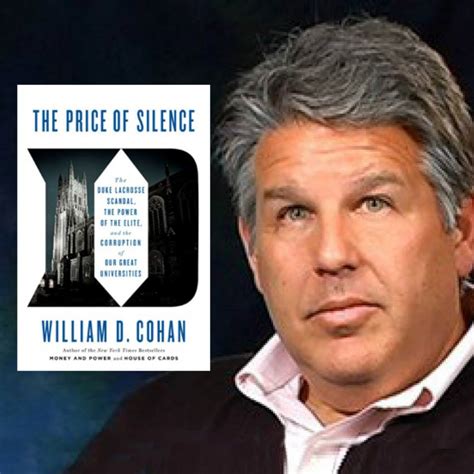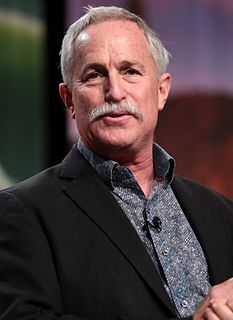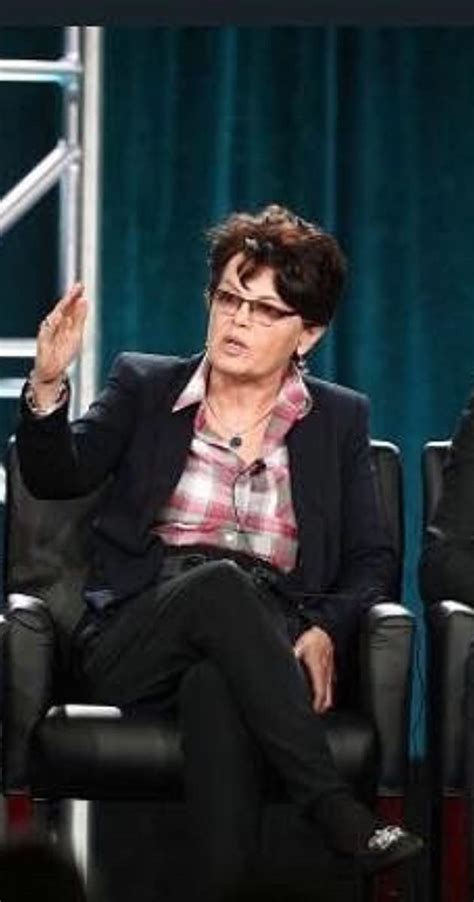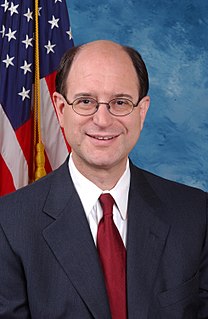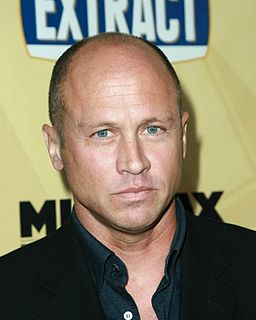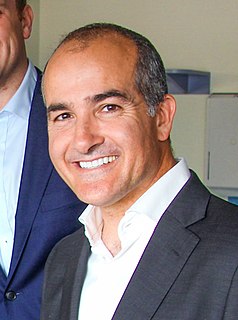Top 579 Executives Quotes & Sayings - Page 10
Explore popular Executives quotes.
Last updated on April 17, 2025.
After visiting several of America's most fashionable playgrounds, I have reached the conclusion that men who work hard enjoy life most. The men at such places can be divided into two classes, first, busy men of affairs ... and, second, rich loafers. I was impressed by the obvious enjoyment corporation heads and other important executives were deriving from their vacation activities.... The idle rich fellows, on the other hand, although indulging in exactly the same activities, palpably were bored.
Would movie moguls release a film portraying Adolph Hitler as a great benefactor of the Jews? Hardly. Would they release a movie if the black community found it to be highly disparaging? No way. You better believe these executives would also think long and hard before they released a movie offensive to American Indians, Muslims homosexuals or virtually any affinity group. Yet, to most movie industries a film which offends millions of Christians is fine and dandy.
This industry should behave like a mother whose child has just run out in front of a car. But instead of clasping the child to them, they start punishing the child. Like you don't dare get a cold. How dare you get a cold! I mean, the executives can get colds and stay home forever and phone it in, but how dare you, the actor, get a cold or a virus. You know, no one feels worse than the one who's sick. I sometimes wish, gee, I wish they had to act a comedy with a temperature and a virus infection.
If General Motors, Ford and Chrysler get the bailout that their chief executives asked for yesterday, you can kiss the American automotive industry goodbye. It won't go overnight, but its demise will be virtually guaranteed. Without that bailout, Detroit will need to drastically restructure itself. With it, the automakers will stay the course - the suicidal course of declining market shares, insurmountable labor and retiree burdens, technology atrophy, product inferiority and never-ending job losses. Detroit needs a turnaround, not a check.
If America is to compete effectively in world markets, its corporate leaders must strategically position their companies in the right businesses, and then manage their workforces in the right ways. However, the nation has a shortage of business leaders who understand the importance of utilizing human capital to gain competitive advantage, let alone the know-how to do so. In the future, that shortcoming promises to be exacerbated because few business schools today teach aspiring executives how to create the kind of high-involvement organizations.
We are all trained to be data driven people, but no hard data exist about the future. Therefore, the only way to look into the future with any degree of accuracy is to use theory, statements of what causes what and why. If executives have the right theories in their heads, they can very quickly interpret market developments. They can identify what matters and why, and act accordingly. So we suggest decision-makers should start by gaining a deep understanding of the relevant collection of theories, and then be alert for signals that indicate certain types of developments.
I can't give a formula for how to spread joy, but I know that the source of the joy is one's own joy, and that that is not distinct from pleasure and fulfillment of desires. So I ask: What makes me feel alive? What is the expression of my inner wild? What would really feel good? What if what makes me feel alive leads me toward the deeper joys, which are found in generosity and service, in creating things that are beautiful to me? Maybe the world needs more of that. How many petroleum company executives are doing their work because it's beautiful to them? Not very many, I bet.
Implementing any major changes to the way companies operate requires time and determination and the shift to globally integrated innovation is no exception - it calls for new capabilities to be built, changes in the structure of the innovation organization, new systems, processes and mindsets. The scope and scale of this task shouldn't prevent executives from starting down the path of change as the systemic nature of innovation activities means that every single element of change that's brought about will make a difference.
How forthright does the audience want the broadcasters to be? Because when you tell your truth, there's a lot of anger that comes out. I think it's a good question to ask TV people [executives] too. How much truth do they want to be told? How much truth does the league want told? Because the truth isn't just a positive truth. If you're going to tell the truth, you would be telling a lot of positive and some negative.
John Akers once said that changing IBM's culture was more difficult than getting elephants to dance. Of course it's really difficult, as Lou Gerstner also found out years later. The title of his own book is Who Says Elephants Can't Dance? He and his top executives were change masters at IBM. All organizations, especially the larger ones, will always need change masters. Dissatisfaction with the status quo and efforts to improve it should be encouraged rather than discouraged. Regrettably, that is often not the case.
When Wal-Mart brings water down to the Katrina victims, it's not doing that to be nice; it's doing it to make larger profits and to increase the value of its shares. If its actions are not accomplishing those objectives, the shareholders can sue the executives, and sue them successfully, because it is illegal for them to act on behalf of any other reason than increasing the value of their shares. There is nothing wrong with that. That is the way that they were created and the way we want them to function to increase prosperity in the market.
Are you going to divest in the banks and pension funds? Plenty of people are willing to invest in stock of those companies. You can argue that when a lot of people divest, it makes the stock price artificially low, which makes their price-to-earnings ratio more favorable, which makes it a better investment for the people who don't give a damn - - and is it really going to change corporate behavior? It begins to create a climate of antagonistic opinion, the result might be that the corporate executives will retreat even more into their own selfjustifying narratives.
Do too many executives still indulge in the short-sighted habit of issuing orders without taking the slightest pains to explain to those responsible for carrying them out the whyfor and wherefor of the orders? Where employees come in daily and hourly contact with the public, surely it is important that care be taken to fit them to reply intelligently to courteous questions. ""Because them are orders"" isn't a satisfying reply-even less satisfactory to the management than to the public.
Congress has all sorts of rules, hedge fund managers, private equity managers, executives, movie stars, fall into that allow them to escape or defer into the future not paying their taxes. And if you can defer your tax into the future, it's the best deal in the world, because you don't just get to eat your cake and have it too. You get to eat your cake and have a bigger cake.
The dirty little secret of what used to be known as Wall Street securities firms-Goldman Sachs, Morgan Stanley, Merrill Lynch, Lehman Brothers, and Bear Stearns-was that every one of them funded their business in this way to varying degress, and every one of them was always just twenty-four hours away from a funding crisis. The key to day-to-day survival was the skill with which Wall Street executives managed their firms' ongoing reputation in the marketplace.
From a business perspective, the question related to cities and sustainability is clear and compelling: can you have a healthy company in an unhealthy city? Arguably, no. Companies need healthy cities to provide reliable infrastructure, an educated and vital workforce, a vibrant economy, and a safe and secure environment to survive and thrive. Business executives have a lot to learn from cities, and a lot to contribute, and this book shows the way, chronicling the successes and the lessons learned about what it takes to make a city healthy, in every sense of the word.
Corporations are legal fictions created by the State to shield executives from liability… It’s like if I had a little hand-puppet, and I went to rob a bank, and the hand-puppet held the little gun and told people to hand over all the money, and then the hand-puppet grabbed the money and ran out, and then I got caught and I handed the hand-puppet over the police and then the police tried the hand-puppet, put the hand-puppet in jail, and I get to keep all the money.
Screenwriting is a terrible way to make a living and I always try to talk anyone out of it. Until you sit in a story meeting with studio executives with no particular ability or actors who haven't even graduated high school telling you exactly how to change your script, you haven't experienced what it's really like to be a screenwriter in Hollywood. Also, unlike novelists and playwrights, you don't own the copyright on your original material. It hurts when you sell a project you love and then suddenly the project you really cared about will never see the light of day.
I've been working in Hollywood for a long time now in many different aspects in front of the camera, behind the camera, and I've worked with top executives, presidents of networks. I've worked all around. I see energy and what's around these studios and a lot of these offices. You don't get the high positions in these companies if you don't take advantage of other people in some way. I've seen that around. I've seen that around the studios, whether it's producers or whoever. Egos are there. Greed.
Senior executives can, after a fashion, get a portion of their pay tax-free. You defer part of your income and not have to pay taxes on it, and then when you retire you have the company buy a life insurance policy on you using that money. The company can deduct that money because it is a business expense, and the money will get paid out to your children or grandchildren when you die, so you have effectively given them your money and it's never been taxed.
The more I move among workers and factories and other plants, the stronger I become convinced that it is advisable to have as [a company] president a practical man, preferably one who has risen from the very bottom of the ladder. Workmen, I find, have far more respect for such men than for collar-and-cuff executives knowing little or nothing about the different kinds of work which have to be done by the workers. Wherever circumstances call for placing a financier or lawyer or a papa's son at the head of a large organization, he should be made chairman or some other title, but not president.
In the beginning, I found myself dealing with a show business dictated by male white supremacists and chauvinists. As a black female, I had to learn how to tap dance around the situation. I had to ... find a way to present my point of view without being pushy or aggressive. In the old days, the only women I saw in this business were in makeup, hairdressing, and wardrobe departments. Now I'm surrounded by women executives, writers, directors, producers, and even women stagehands.
It is a great mistake for presidents and other leading executives of organizations having branches throughout the country to chain themselves to their desks at headquarters and send out rigid instructions to those in charge of distant branches and offices. Because a man sits in a palatial office in New York or Chicago or Philadelphia or Detroit and draws a big salary, it does not necessarily follow that he knows better than the man on the spot what ought to be done.... Paul, Caesar, Napoleon did not merely sit at home and issue long-range instructions.
Now I know that if I'm in a fight or a big argument with executives or the studio or whoever, and it's getting to a point where it's starting to get bad, I don't have to have the fear of, "Am I strong enough to see this through? Would I really make a stand here? Would I really quit over this issue?" And I know in my heart that there is a place where I would walk away. I don't have to make it about my ego. I don't have to make it about whether I'm being strong enough or tough enough.
David Tennant is a massive fan, and grew up dreaming he would be the Doctor Who one day. So I did feel, when I first got the job, "Right, now I've got to do loads of research into absolutely everything Doctor Who." But that's not possible to do in a short space of time. So my knowledge has been growing and developing as I've been doing it, and that's been fine. That's been appreciated by the fans, and the executives never expect me to be brushed up on absolutely everything.
Early in my career when we went to golf tournaments and charity dinners I noticed businessmen and executives would give the players their cards. Well, they're giving you their cards for a reason. I said to my wife, 'All the guys get these cards and then when they get to the parking lot they rip them up or throw them away. It's really weird.' My wife .. said maybe you should just sign a picture and mail it to them. You know, 'Great playing golf with you,' or whatever. So, I did and lo and behold some of those guys I sent pictures to way back then are now CEOs at big companies.
When top executives get huge pay hikes at the same time as middle-level and hourly workers lose their jobs and retirement savings, or have to accept negligible pay raises and cuts in health and pension benefits, company morale plummets. I hear it all the time from employees: This company, they say, is being run only for the benefit of the people at the top. So why should we put in extra effort, commit extra hours, take on extra responsibilities? We'll do the minimum, even cut corners. This is often the death knell of a company.
Consider the many financial industry executives who walked away with many millions as their organizations failed - I think the expression is "failing upward." People also need to understand that their "technical" job performance is correlated with their career success, but again, many other factors such as educational credentials, length of service, and yes, political skills, also contribute to success. So people need to understand business and technical issues but they also need to master organizational dynamics.
I'm a playwright by trade, and in theater, writers have complete control over everything. Nobody can change a word without your permission. I've had a couple screenwriting experiences that weren't terrible, but they were typical, where executives came in and gave you sometimes good notes and sometimes horrible notes - but they wanted to change the movie that everybody had agreed to make. After a couple of times, it's like, "Why are we doing this?" The story is not going to turn out very good when 13 people are writing it together.
The amazing fact that one person can make his own film - I think animation is somewhat unique in that respect. I don't need to deal with lawyers. I don't need to deal with corporations. I don't need to deal with executives or agents or any of that. I can just sit at home and make a feature film. That's a wonderful experience. Each film I make gets more popular, more press and makes more money. So it's amazing that I've survived and actually prospered doing that sort of homegrown, cottage-industry filmmaking.
The most important change, and it's been going on for at least three decades, is the increasing "professionalization," if that's a word, of the faculty. By professionalization I mean the tendency of faculty members to have Ph.D.'s in their academic specialties, and for these specialties to be ever more narrowly defined. The higher-rated schools may have chief executives in residence or retired execs on three-year teaching fellowships, but the days when most faculty members had considerable prior experience as businessmen or women - those days are mostly over.
If most of the reviewers are white cis men, if most of the distributors are white cis men, most of the executives in history have been white cis men. Most of the people who have been giving awards to people are people who've already been in the business - retired white cis men. They've been creating a body of narrative forever.
I've always resented the smug statements of politicians, media commentators, corporate executives who talked of how, in America, if you worked hard you would become rich. The meaning of that was if you were poor it was because you hadn't worked hard enough. I knew this was a lite, about my father and millions of others, men and women who worked harder than anyone, harder than financiers and politicians, harder than anybody if you accept that when you work at an unpleasant job that makes it very hard work indeed.
It kind of hit me at some point during the process that most people in the film business - not just the executives, the people who make them, too - tend to come from pretty upper-class backgrounds. If they go work a job, it's to have that experience, that sort of thing. After they graduate college, they have time to go visit Europe and take some time off and get their heads together. That kind of thing, I sure didn't have.
My earlier days were all about playing, writing songs and producing songs. In the early 90's my former wife, Marylata Elton, got tapped to run the music department for DreamWorks. She worked right under Hans Zimmer during the heady days of Prince of Egypt, Shrek, Chicken Run, Gladiator just to name a few. She was and still is, one of the great music executives and has quite a career path of her own.
Good C-suite executives rise to the top because they can execute. Good execution at the operational level requires us to have a solid handle on details - that doesn't mean operators don't delegate, it just means that they have a strong line of site to the front lines because they know that is where operational success is driven. As people move into the c-suite, they hold on to their operational persona and likely feel the need to do more. But success in the c-suite comes from our ability to be more strategic and trust that we have selected highly qualified people to take our places.
I'm not talking about Trump's brand but rather the intimately connected brand called "make America great again" that he created to make all these promises to working Americans - is intensely vulnerable, if there is sustained scrutiny of the kind we've seen about Comey and Russia. He's appointed five Goldman Sachs former executives to his Cabinet, his commerce secretary is renegotiating NAFTA to make it far better for corporations and worse for workers, and they're talking about this right out in the open... I mean, how much news have you seen about that?
Rich Indians typically tried to work around a dysfunctional government. Private security was hired, city water was filtered, private school tuitions were paid. Such choices had evolved over the years into a principle: The best government is the one that gets out of the way. The attacks on the Taj and the Oberoi, in which executives and socialites died, had served as a blunt correction. The wealthy now saw that their security could not be requisitioned privately. They were dependent on the same public safety system that ill served the poor.












